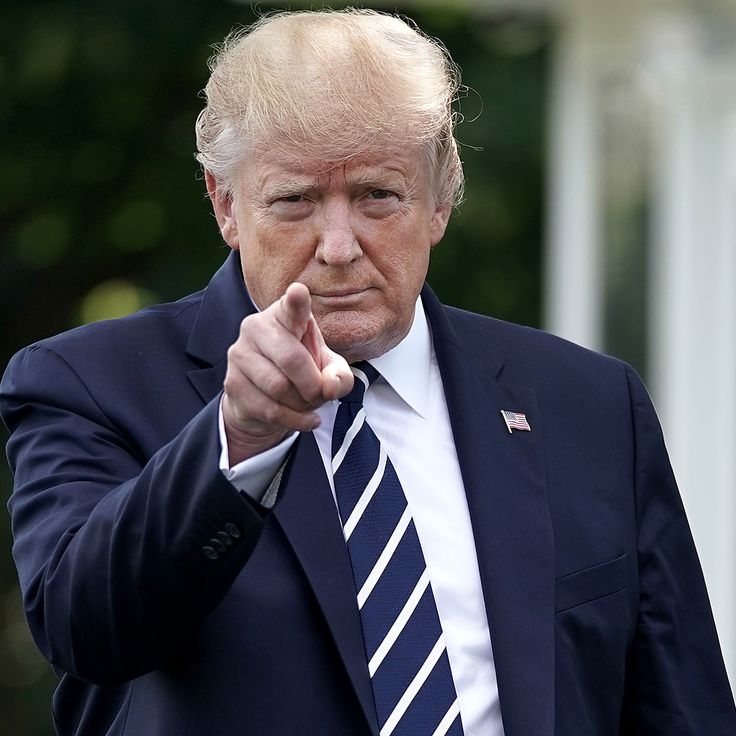On January 23, 2025, former President Donald Trump made a headline-grabbing announcement that set the tech and political worlds abuzz. During a live-streamed event from his private residence in Mar-a-Lago, Trump revealed that he was spearheading a groundbreaking initiative to invest $500 billion in the field of artificial intelligence (AI). This new venture, dubbed “Stargate,” promises to transform the landscape of AI, claiming to be an unprecedented fusion of technological advancement, economic growth, and national security.
The announcement caught many by surprise. While Trump has been outspoken on various technological and economic fronts, this level of investment in AI represents an entirely new and ambitious chapter in his post-presidential career. However, the choice of the name “Stargate” itself raised many eyebrows. The name is a direct nod to the popular science fiction franchise, suggesting that the venture’s scale and potential are vast, speculative, and futuristic.
The Vision Behind Stargate
Trump’s vision for Stargate centers on creating a cutting-edge AI ecosystem that would harness the capabilities of machine learning, quantum computing, and advanced robotics. The initiative is framed as a comprehensive, multi-faceted approach to ensuring America’s leadership in the next frontier of technological innovation, both in the commercial and defense sectors. Trump outlined how this $500 billion initiative would span several key areas, including research, development, infrastructure, and the integration of AI into various industries, with the aim to create millions of new jobs in the process.
He also emphasized the importance of AI to national security, stating that “our military must be the most advanced in the world, and AI is the key to that future.” According to Trump, Stargate will not only position the United States as the global leader in AI but will also ensure the country’s supremacy in defense technology, economic competitiveness, and cybersecurity.
One of the central components of the Stargate initiative is the establishment of a series of state-of-the-art AI research facilities. These facilities would work in partnership with leading universities, tech companies, and government agencies, encouraging innovation in a variety of sectors, from autonomous vehicles to healthcare and manufacturing. The scale of investment is intended to push the boundaries of AI’s capabilities and ensure that the U.S. remains at the forefront of these critical developments.
Economic Implications
Beyond its technological ambitions, the Stargate project promises to have significant economic implications. Trump predicted that the initiative would create hundreds of thousands of high-paying jobs, many in fields like data science, robotics, cybersecurity, and machine learning. These new roles would be essential for the growth and maintenance of the rapidly expanding AI infrastructure, providing opportunities for American workers to develop skills in some of the most cutting-edge fields in modern technology.
The project is also expected to bring about a new wave of private-sector investments. Trump mentioned that the $500 billion in government spending would act as a catalyst for further investment from private companies, venture capitalists, and international stakeholders. By establishing a government-backed AI ecosystem, the U.S. could encourage more private-sector innovation while maintaining an advantageous position in the global AI race.
Additionally, Trump has expressed a belief that AI-powered technologies will lead to higher productivity in industries such as agriculture, energy, and logistics. By automating many labor-intensive processes and improving efficiency, Stargate could lower costs for businesses and consumers while simultaneously spurring growth in a variety of sectors.
National Security and Defense
National security is a primary concern for any large-scale AI initiative, and Trump’s announcement specifically underscored this point. He described the Stargate initiative as a necessary step in ensuring that the U.S. military remains dominant in the age of AI. The defense sector, Trump argued, is one of the most critical areas where AI technologies can provide a decisive edge. With AI playing an increasingly central role in cybersecurity, unmanned defense systems, and advanced weaponry, it is essential that the U.S. maintains a technological superiority over adversaries like China and Russia.
To that end, Stargate is expected to develop advanced defense systems that incorporate AI-driven autonomous drones, real-time battlefield analytics, and predictive threat identification. These technologies could revolutionize how the U.S. military operates and responds to global security challenges. While some critics have raised concerns about the ethical implications of AI in warfare, Trump assured that Stargate would adhere to international laws and principles of warfare.
Concerns and Criticisms
Despite the boldness of the initiative, the announcement of Stargate has generated significant debate. Critics have raised a number of concerns, particularly regarding the scale and feasibility of such a massive government-led AI project. Some believe that $500 billion might not be enough to achieve Trump’s ambitious goals, while others worry that such an initiative could be prone to inefficiency, mismanagement, or political interference.
The ethical implications of large-scale AI development also remain a major point of contention. AI is already a subject of intense debate, with concerns about privacy, data security, and job displacement. There are also fears that AI could exacerbate existing societal inequalities, particularly as automation displaces low-income workers. Critics argue that the Stargate initiative could intensify these issues without adequately addressing the ethical and societal consequences of rapid technological advancement.
Moreover, while Trump’s emphasis on national security is understandable, some worry about the potential for an AI arms race. The pursuit of AI-powered weaponry and surveillance technologies could lead to geopolitical tensions, especially if rival nations respond by ramping up their own military AI capabilities. There are calls for greater international cooperation in regulating AI development to avoid the dangers of an unrestrained technological arms race.
The Global Impact
In addition to its domestic objectives, the Stargate initiative has significant international implications. With China, Russia, and other nations racing to develop their own AI technologies, the U.S. has to maintain its competitive edge. Trump has already signaled that Stargate will be a key part of his strategy for reasserting U.S. leadership on the world stage. By dominating the AI space, the U.S. would not only have a military advantage but could also strengthen its economic power and influence over global technological standards.
Furthermore, Trump’s decision to link AI development with economic growth has resonated with a number of countries that are looking to leverage emerging technologies to modernize their own industries. Stargate could potentially serve as a model for other nations that wish to invest heavily in AI infrastructure and research, either in collaboration with the U.S. or through independent efforts. The project could pave the way for new global alliances in the tech space, as well as foster greater competition and innovation worldwide.
Conclusion
Trump’s announcement of a $500 billion investment in artificial intelligence through the Stargate initiative marks a significant moment in the ongoing dialogue about the future of AI and its implications for the world. While the bold ambition and scale of the plan are impressive, the challenges it presents—ranging from ethical concerns to geopolitical tensions—are formidable. Ultimately, whether or not Stargate will succeed in its lofty objectives remains to be seen, but it certainly underscores the growing importance of AI in shaping the future of global power and technological progress.



